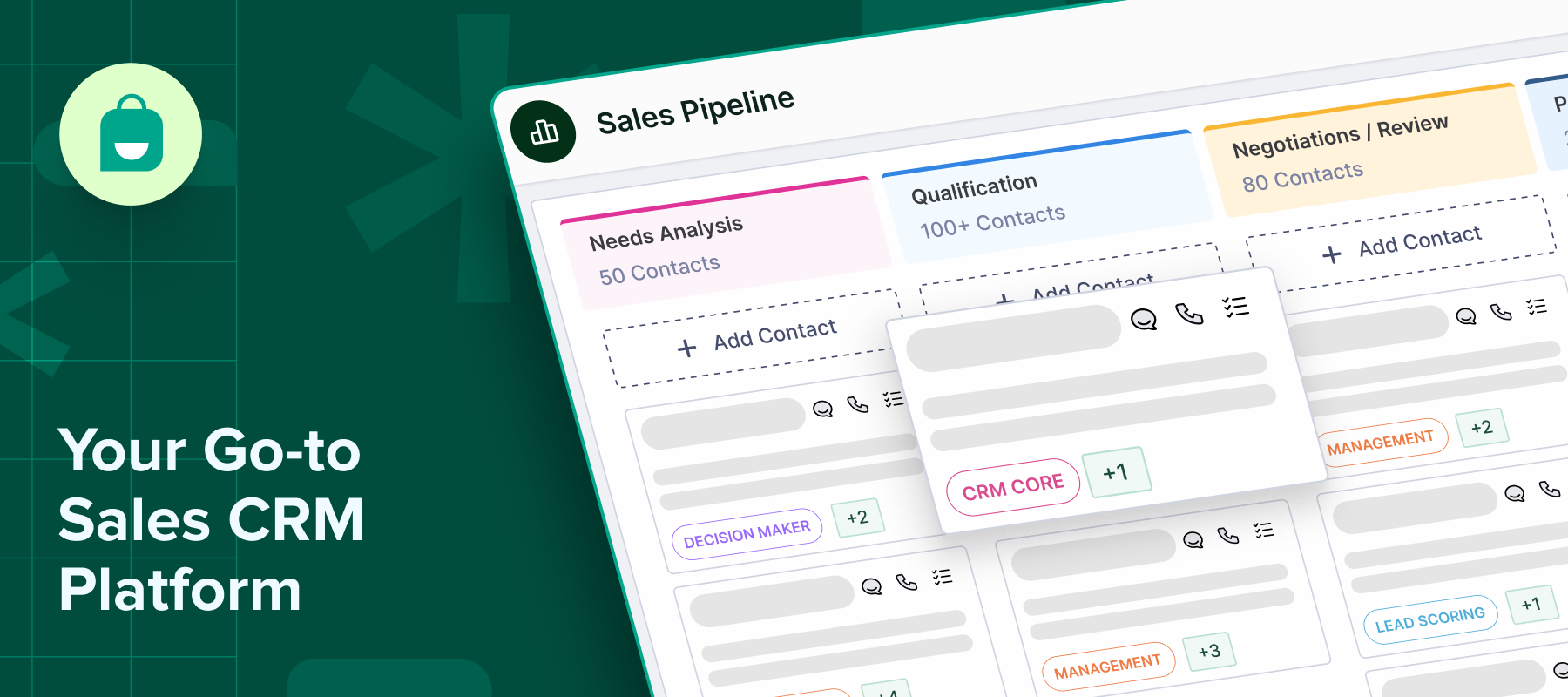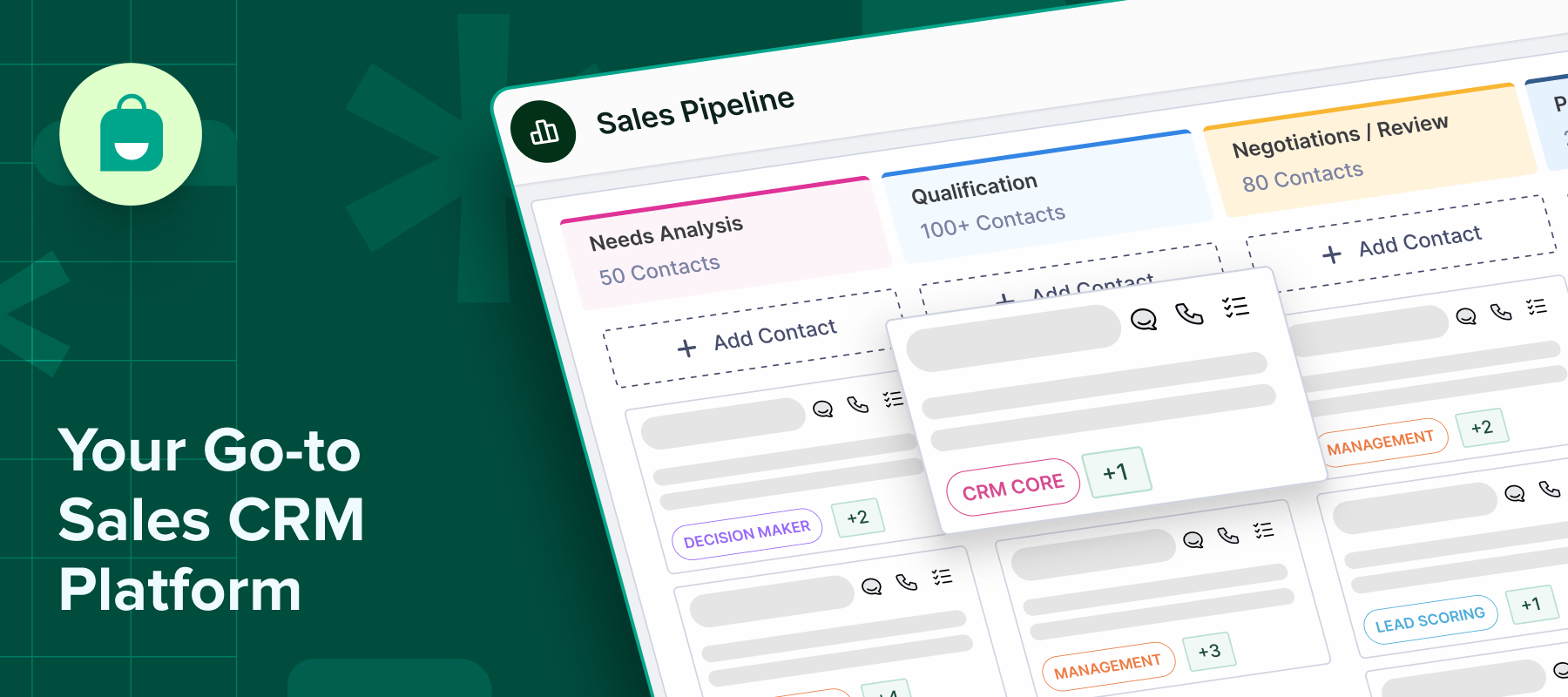Customer retention is more valuable than most businesses realize.
Regardless of industry, keeping existing customers is cheaper and more profitable than chasing new ones. Retained customers spend more, refer others, and are easier to sell to.
That’s why tracking interactions, engagement, and customer behavior has become essential for businesses.
This is where CRM steps in, giving businesses a clearer view of their customers and helping them act on it.
In this post, we look at how WhatsApp Sales CRM supports customer retention and how your business can benefit from it.
Understanding WhatsApp CRM
WhatsApp CRM is a customer relationship management system that works directly within WhatsApp. It helps businesses manage leads, automate sales workflows, and close deals through a platform their customers already use.
WhatsApp CRM combines the familiarity of WhatsApp with the structure of a CRM to deliver faster, smarter, and more personal customer interactions.
Key features of a WhatsApp CRM
Here are some key features of WhatsApp CRM:
-Lead capture & sync: Automatically sync contacts and capture high-intent leads from WhatsApp, Instagram, web forms, or APIs.
-Automated workflows: Trigger personalized messages, auto-responses, and lead follow-ups without manual effort.
-Broadcast messaging: Send targeted, personalized WhatsApp broadcasts at scale without losing the human touch.
-Unified customer view: Access all customer data, chats, documents, and activity history in one centralized dashboard.
-Sales pipeline management: Manage your funnel visually with drag-and-drop deal stages, task assignment, and team tracking.
-In-chat sales tools: Share product catalogs, accept payments, and send reminders within the chat.
–Real-time analytics: Track agent performance, lead progress, and campaign results with built-in reporting tools.
WhatsApp CRM is designed to integrate with your business’s existing tools. From lead forms and Google Sheets to payment gateways, calendars, and customer support platforms, these integrations help create a unified system where data flows automatically.
This means your team doesn’t waste time switching tabs or duplicating work. Every interaction, update, or lead captured through WhatsApp is instantly reflected across your systems.
Benefits of WhatsApp CRM in Customer Retention
Here are some pros of WhatsApp CRM in customer retention:
1. Personalized communication
WhatsApp CRM helps personalize interactions using customer history, preferences, and past behavior. With a unified customer view, your team can send relevant, timely messages, whether it’s a birthday note, a product suggestion, or a quick check-in. These personal touches encourage repeat engagement.
2. Real-time customer support
WhatsApp CRM enables instant responses, smart routing, and automated replies, ensuring customers get help when they need it. Faster resolution means better customer experience, reduced churn, and improved retention metrics.
3. Proactive engagement
WhatsApp CRM helps you stay ahead by reaching out before the customer goes quiet. You can schedule reminders, product nudges, and automated follow-ups that keep conversations alive. This proactive approach helps maintain engagement and prevents customer drop-off.
4. Loyalty programs and exclusive offers
Using WhatsApp CRM, you can run personalized loyalty campaigns right inside the chat. Send exclusive discounts, early access to new products, or special rewards based on customer activity. These targeted touches build loyalty and keep your best customers coming back.
5. Feedback collection and analysis
WhatsApp CRM simplifies feedback collection through automated surveys and post-interaction messages. Responses are stored and analyzed in one place, helping you identify issues early and make informed improvements that directly support retention.
Strategies to Enhance Customer Retention Using WhatsApp CRM
Here are some effective strategies to improve customer retention using WhatsApp CRM:
Segmentation and targeted messaging
Start by grouping your customers based on behavior, purchase patterns, or engagement level within the CRM. Once segmented, use WhatsApp to send personalized messages, like a reorder reminder for frequent buyers or a special offer for inactive users.
Automated follow-ups
Set up automated workflows inside the CRM to trigger follow-up messages based on customer actions like abandoned carts, unanswered queries, or completed purchases. For example, if a customer doesn’t respond within 48 hours, the CRM can automatically trigger a follow-up message or offer.
Integration with marketing campaigns
Connect your WhatsApp CRM with your email platform, lead forms, or ad tools to ensure all campaign activity feeds into one system. When a lead comes in from a Facebook ad or a website form, trigger a WhatsApp welcome message or drip sequence directly from the CRM.
Utilizing analytics for continuous improvement
Use the CRM’s built-in analytics dashboard to track message performance, customer responses, and agent efficiency. Identify which messages are driving engagement and which ones are being ignored. Based on these insights, refine your message tone, timing, or segmentation strategy to keep improving retention outcomes month over month.
Case Studies: Successful Implementation of WhatsApp CRM
Here are some case studies of the successful implementation of WhatsApp CRM:
1. The Design Cart
The Design Cart, an eCommerce platform specializing in craft supplies, used WhatsApp CRM automation to turn WhatsApp into a high-performing sales and retention channel.

They simplified the buying journey by centralizing customer communication and promoting products via chat. Automated support handled 70% of queries, freeing time for growth-focused work. This led to a 30% increase in retention and 20% of revenue from WhatsApp.
2. ISAK
ISAK, a niche fragrance brand, aimed to scale its operations and improve customer engagement. To tackle this, they adopted Interakt’s WhatsApp CRM to automate messaging while keeping communication personal and timely.

This helped them scale without sacrificing engagement quality. They saw a 42% increase in customer engagement, making WhatsApp key to their retention strategy.
Conclusion
Customer retention happens through consistent, personalized, and timely communication.
WhatsApp CRM makes that possible by unifying your sales, support, and engagement on a platform your customers already trust and use daily.
The value is clear, from targeted messaging and automation to real-time support and data-driven insights.
As the case studies show, businesses using Interakt’s WhatsApp CRM are achieving higher retention and stronger revenue impact.







